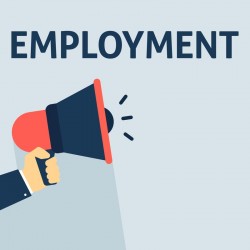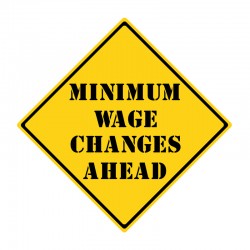Minimum Wage: New York State’s minimum wage increases to $15 per hour for all New York City employers, regardless of size, effective December 31, 2019. For Long Island and Westchester employers, the minimum wage increases to $13/hour, and in the rest of the State, the minimum wage increases to: $11.80 per hour. Annual increases to the minimum wage will continue until the minimum wage for the entire State reaches $15 per hour. Employers must post the new rates in their workplaces.
Salary Threshold Amounts: For many employers, the new increase to the federal salary threshold level for determining whether an employee is exempt from overtime pay requirements under the federal Fair Labor Standards Act (FLSA) does not impact them because the labor laws of the States in which they employ workers already require higher salary thresholds than the new federal salary threshold of $684 per week ($35,568 annually). The FLSA and the New York State Minimum Wage Act (MWA) exempt employees who work in a bona fide administrative and executive capacity from the overtime pay requirements of the FLSA and MWA.
For example, in New York State, effective 12/31/19, the salary threshold for administrative and executive exempt employees will increase as follows:
- All New York City employers–Salary threshold: $1,125 per week ($58,500 annually)
- Long Island and Westchester: $975 per week ($50,700 annually)
- Rest of New York State: $885 per week ($46,020 annually)
Notification Requirements: Remember that New York State requires employers to provide employees with written notice of any increase to their rate of pay at least 7 days before the rate change, unless the new pay stub reflects those changes (then written notice is not needed—except in the hospitality industry).
Avoid Common Mistakes: Don’t make the mistake of assuming that all salaried employees are exempt from overtime pay requirements. Employees are not automatically exempt from overtime pay laws even if their weekly pay meets or exceeds the respective federal and State salary thresholds because they must also meet a “job duties” test to determine exempt status for “executive” or “administrative” “white-collar” exemptions from overtime pay.
Nonprofit particular: Remember that the FLSA does not apply to nonprofit organizations in the same way that it applies to for-profit businesses for those nonprofits to be covered by the law. Specifically, nonprofit charitable organizations may be a “covered enterprise” if: 1) they engage in commercial activity resulting in sales or business done resulting in $500,000 annual gross revenues (such as operating a gift shop in a museum or providing veterinary services for a fee) engaged in commerce or the production of goods for commerce where they have two or more employees; or 2) they are a hospital, business providing medical or nursing care for residents, school, preschool, college, and government agency.
Note that individual employees not covered under an “enterprise” basis may independently be covered under the FLSA regardless of the number of employees if they are engaged in “interstate commerce” or the production of goods for interstate commerce (which could encompass something as simple as handling credit card transactions, making interstate phone calls or sending and receiving emails across state lines).
Regardless of whether the federal FLSA applies, most nonprofit organizations will be covered by their State’s wage/hour laws (note: in some jurisdictions like New York, a new “nonprofitmaking institution” may elect to be exempt from coverage under a State minimum wage order and State overtime pay requirements so long as they agree to pay the statutory minimum wage).
What Should Employers Do Now? Ensure they update pay rates accordingly, review worker classification status carefully together with updated job descriptions, and provide required postings and notices. Train managers on these legal updates. The amounts that employers can claim for tip, meal and lodging credits, and deduct for uniform allowances also changed on December 31st so employers should check the applicable New York minimum wage orders for those changes.
Please contact Lisa M. Brauner, Perlman & Perlman LLP, lisa@perlmanandperlman.com, 212-889-0575, if you have any questions about whether your employment practices are legally compliant.
-
Perlman & Perlmanhttps://www.staging-perlmanandperlman.com/author/nancyisrael/
-
Perlman & Perlmanhttps://www.staging-perlmanandperlman.com/author/nancyisrael/
-
Perlman & Perlmanhttps://www.staging-perlmanandperlman.com/author/nancyisrael/
-
Perlman & Perlmanhttps://www.staging-perlmanandperlman.com/author/nancyisrael/








